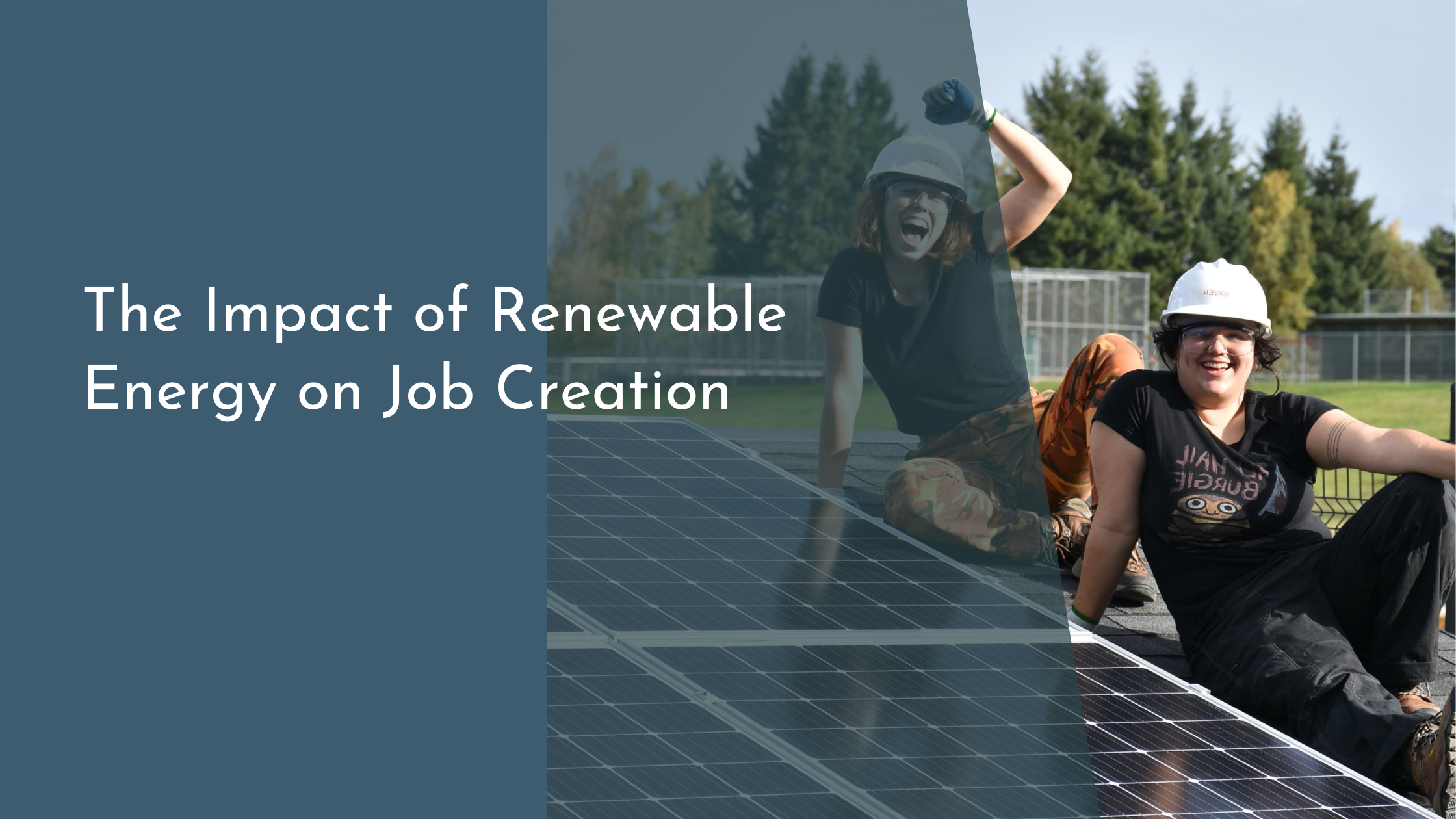The Impact of Renewable Energy on Job Creation
In recent years, the conversation around renewable energy has shifted from niche debates to mainstream discussions, bringing to light not only its environmental benefits but also its potential to drive economic growth. One of the most significant impacts of this transition is the creation of jobs. As countries around the world strive to reduce their carbon footprints, the renewable energy sector has emerged as a vibrant source of employment, promising a sustainable future for both the planet and its workforce.
Introduction to Renewable Energy and Employment
Renewable energy refers to energy derived from natural sources that replenish themselves over short periods, such as solar, wind, hydroelectric, and geothermal power. Unlike fossil fuels, which are finite and environmentally damaging, renewables offer a cleaner, more sustainable energy solution. As governments and businesses worldwide invest in renewable energy infrastructure, the sector is experiencing unprecedented growth, leading to a surge in job creation. This not only helps in reducing unemployment rates but also fosters innovation and technological advancements.
The employment potential within the renewable energy sector is becoming increasingly evident. As traditional energy industries, such as coal and oil, face decline due to environmental regulations and market shifts, renewable energy offers a promising alternative. Jobs in this sector are diverse, spanning from research and development to manufacturing and installation, providing opportunities for a wide range of skill sets. Moreover, with global commitments to reducing carbon emissions, the demand for skilled workers in renewable energy is expected to continue rising, drawing more individuals into this burgeoning field.
Types of Jobs Created by Renewable Energy
The renewable energy sector generates a broad spectrum of jobs, from technical positions like engineers and technicians to roles in research, administration, and sales. Technological advancements in solar and wind power have led to an increased need for specialists capable of designing, installing, and maintaining complex energy systems. For instance, solar photovoltaic installers and wind turbine technicians are among the fastest-growing occupations, reflecting the rapid scale-up of these technologies.
Beyond technical roles, renewable energy also creates employment opportunities in supporting industries. This includes supply chain management, where professionals are needed to oversee the procurement and distribution of materials for renewable energy projects. Additionally, there are roles in policy development and advocacy, essential for shaping the legislative landscape that supports renewable growth. This wide range of job types ensures that the renewable energy sector can absorb workers from declining industries, providing a pathway for individuals to transition into a more sustainable career.
Regional Job Growth in Renewable Sectors
The growth of renewable energy jobs varies significantly by region, influenced by factors such as resource availability, government policies, and investment levels. In the United States, states like California and Texas lead in renewable energy employment due to their abundant natural resources and supportive policy environments. California’s commitment to achieving 100% clean energy by 2045 has spurred investments in solar, wind, and battery storage projects, creating thousands of jobs in the process.
In Europe, the transition to green energy is similarly creating employment booms, particularly in countries like Germany and Spain. Germany’s Energiewende initiative has been a driving force behind the country’s leadership in renewable energy, resulting in significant job creation in the solar and wind industries. Meanwhile, Spain’s recent renewable energy auctions have reinvigorated its solar sector, promising thousands of new jobs. These regional differences highlight the importance of supportive policies and investments in driving job growth in the renewable energy sector.
Conclusion: A Bright Future for Green Jobs
As the world grapples with the challenges of climate change and economic recovery, renewable energy emerges as a beacon of hope. The sector’s potential for job creation is vast, offering opportunities for workers across various skill levels and industries. With continuous advancements in technology and increasing global commitments to sustainability, the future for green jobs is promising, set to play a significant role in the global economy.
The transition to renewable energy is not just about replacing fossil fuels; it’s about building a sustainable and inclusive economy. As the sector continues to grow, it will create millions of jobs worldwide, offering rewarding career paths and contributing to a cleaner, greener future. By investing in renewable energy, we are investing in a better world for generations to come, where economic prosperity and environmental responsibility go hand in hand.


